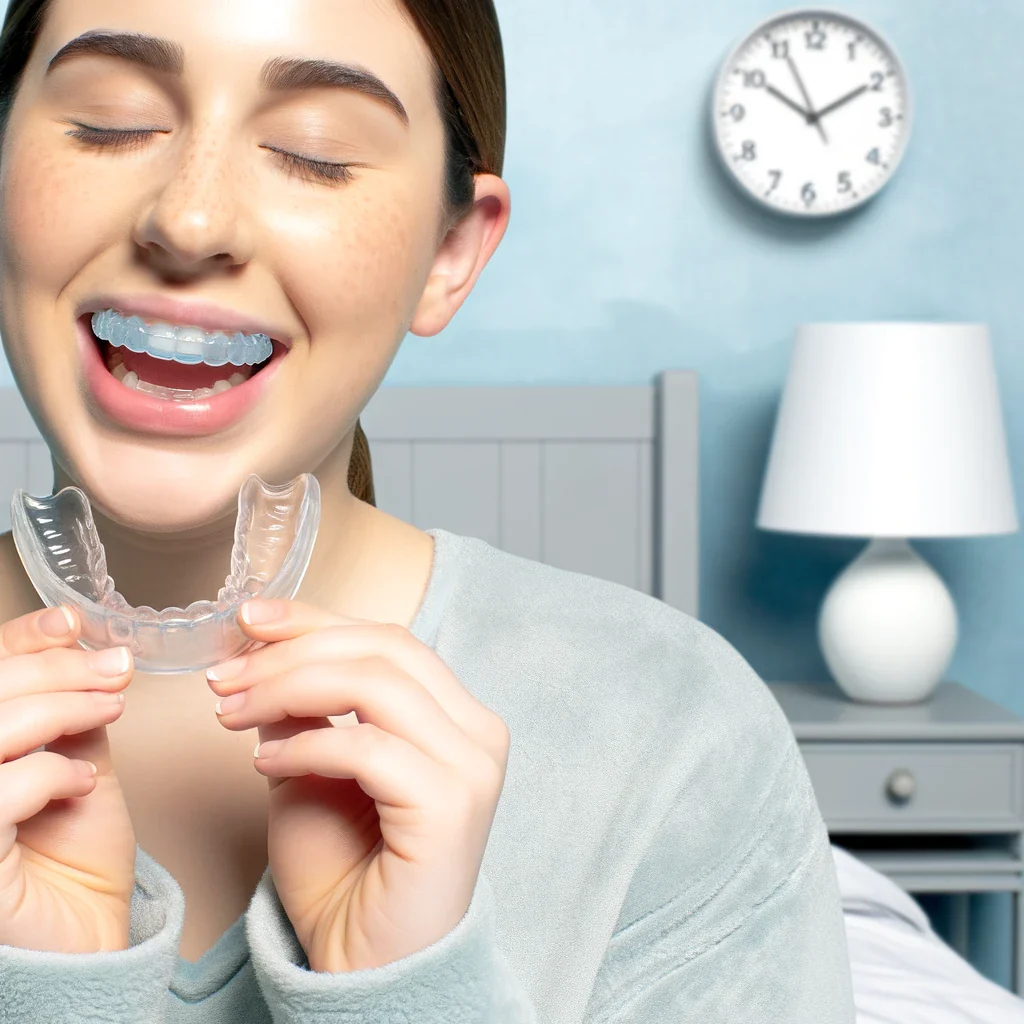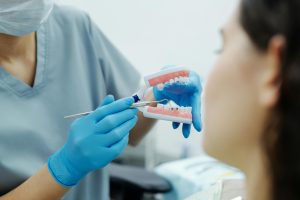What is a Nightguard?
A nightguard is a protective device, often made of plastic, that fits over the teeth to prevent grinding and clenching. It can be worn on either the upper or lower set of teeth, depending on individual needs, and is customized to match the shape of the user’s teeth for a comfortable fit.
Why the Right Nightguard Matters
Selecting the correct nightguard is crucial for maintaining oral health. Here’s why:
- Avoiding Plaque Development: Unlike sports mouthguards, which cover both teeth and gums, nightguards are designed to allow saliva flow, helping to wash away bacteria and food particles, thus preventing plaque buildup.
- Preserving Bite Alignment: Custom-made nightguards are designed to fit your bite precisely, preventing changes in tooth alignment that can occur with generic, over-the-counter devices.
Types of Nightguards
Nightguards are categorized based on the material used:
- Hard Nightguards: Made from durable acrylic, these are ideal for severe cases of teeth grinding or temporomandibular joint (TMJ) disorders.
- Soft Nightguards: Suitable for mild cases, these are more flexible but may not offer the same level of durability.
- Hybrid Nightguards: Combining hard and soft materials, these offer a balance of comfort and protection.
Considerations for Choosing Between Lower and Upper Nightguards
When selecting a nightguard, it’s essential to consider the following:
- Comfort: Choose a guard that fits comfortably. A lower nightguard is often less bulky, making it suitable for people with a sensitive gag reflex or those who grind their teeth during the day.
- Condition of Teeth: If one set of teeth has missing or crooked teeth, choose the other for a better fit.
Benefits of Wearing a Nightguard
- Prevents Teeth Damage: Continuous grinding wears down enamel, leading to sensitivity and increased risk of cavities and infections.
- Eases TMJ Symptoms: By reducing tension in the jaw, nightguards help prevent the development of TMJ disorders.
- Alleviates Chronic Headaches: Tense muscles in the jaw, neck, and shoulders contribute to headaches. A nightguard relaxes these muscles, reducing pain.
Nightguard Maintenance Tips
- Rinse Before and After Use: Use cold water or a mouthwash to rinse the nightguard before and after wearing.
- Regular Cleaning: Clean with a toothbrush and mild soap or toothpaste. Avoid hot water, which can deform the shape.
- Proper Storage: Keep it in a ventilated case away from direct sunlight and extreme temperatures.
Using a nightguard can significantly improve your quality of life by protecting your teeth and alleviating discomfort associated with bruxism.







